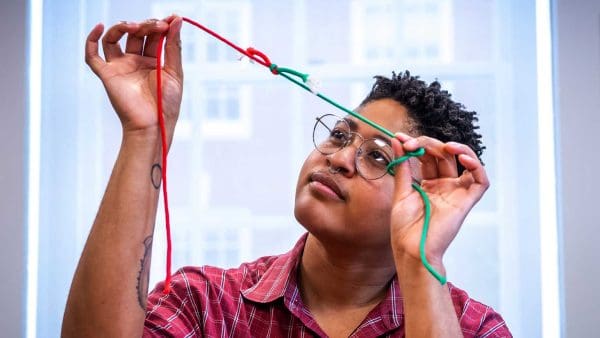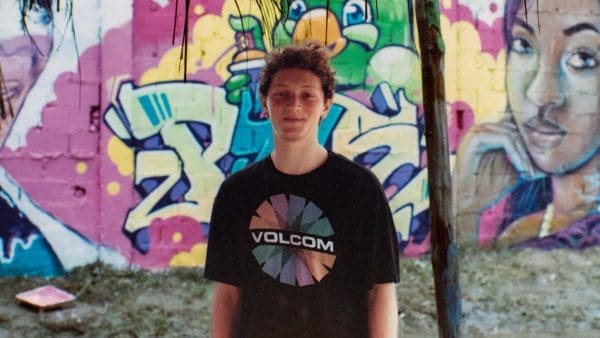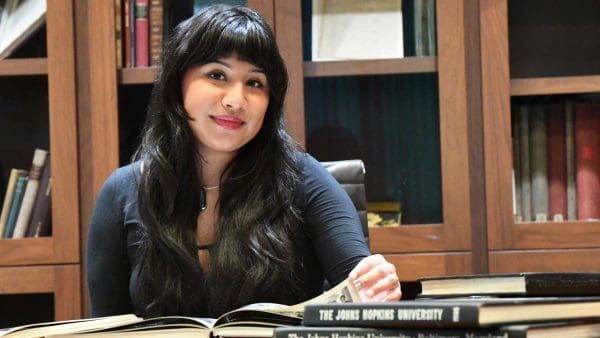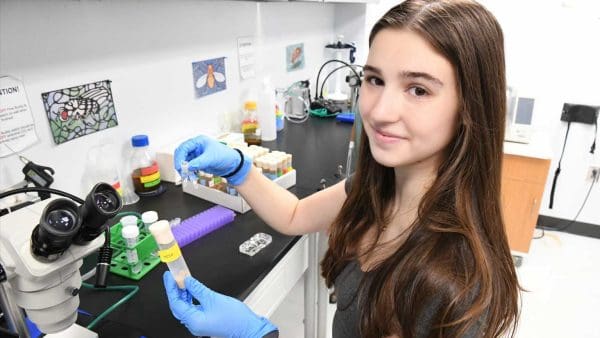
Bronte Nevins is an avid volunteer and the senior’s LinkedIn page lists more than six organizations she’s given her time to, dating back to high school when she tutored homeless children. But she’s gotten more from this work than just warm feelings—it’s honed her career aspirations.
“I started out thinking that I wanted to go into medicine,” Nevins says. “But from my experiences working in clinics and with families in a variety of settings, it came to my attention that just working with individuals, while really important, won’t necessarily change things. To address the more systemic problems that affect people you have to use policy.”
She’s found a public health major with a minor in social policy to be a good fit for this focus, in addition to her involvement with the Krieger School’s Poverty and Inequality Research Lab, an interdisciplinary social science lab run by Stefanie DeLuca, the James Coleman Professor of Sociology and Social Policy. Nevins worked on a project called “Who’s Moving In?,” which examined patterns of investment and disinvestment in 10 neighborhoods near the Homewood campus. A number of philanthropic and public initiatives are at work in central Baltimore, designed to fight crime and grime, boost economic vitality, and address vacant properties. What’s working and what’s not? And how do residents feel about it all? For this, Nevins had to hit the streets and knock on doors to ask.
“We wanted to see if the changes are being done in a way that the community likes and that is actually benefiting people,” she says. “In the beginning, I was like, oh my gosh, nobody is going to want to talk to me.” However, she discovered that many residents did, particularly as she honed her interview techniques. “The best interviews were when I kept my mouth shut more and just listened and let people guide it the way they wanted,” she says. “I think I learned more that way.”
She gave a PowerPoint presentation on her efforts to date—some 90 hours of taped interviews from some 30 residents—but the work is ongoing. There are more interviews to perform before the responses can be analyzed in order to discern any overarching community response to the considerable focus—and funding—directed at this part of the city.
“In my classes, we talk about mechanisms and how we think a given policy will affect this or that, but we really don’t think about all of the unintended consequences,” she adds. “How might it ripple out? So, I think that this experience really brought home to me how policy is processed in an individual home.”




